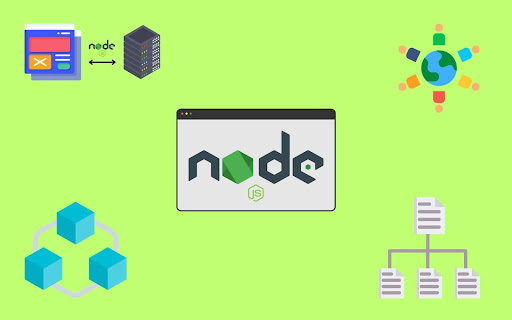What is Node.js?
Definition of Node.js
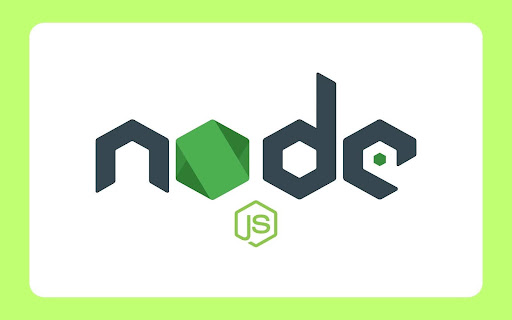
Node.js is defined as a “JavaScript runtime built on the V8 JavaScript engine.”
Originally, JavaScript was a programming language operating solely within web browsers, mainly used in front-end development. However, the advent of Node.js has freed JavaScript from the constraints of web browsers, enabling server-side implementations.
‘Runtime’ here refers to the environment in which a specific language runs. If JavaScript’s runtime was the web browser, Node.js introduces a new runtime capable of server-side implementation.
The Reason Behind Node.js Development
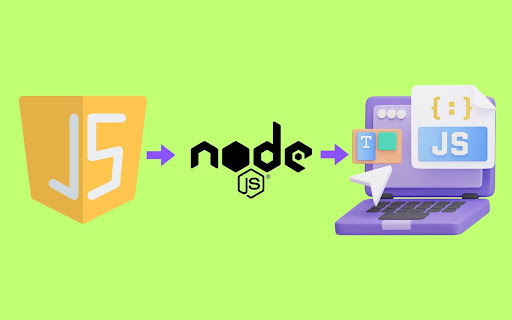
The Genesis of Node.js:
Node.js emerged in 2005, following the introduction of Google Maps, which highlighted the potential of web application languages. Attempts to use JavaScript in server environments existed, but their slow speed made them impractical.
However, the launch of Google Maps increased the efforts to build web applications using JavaScript, focusing attention on the need for a fast JavaScript engine.
A JavaScript engine translates JavaScript files into a format readable by computers. In 2008, Google’s release of the beta version of Chrome with the C++ based V8 JavaScript engine marked a significant milestone.
This engine was faster than any other JavaScript engine, intensifying the need for JavaScript usage beyond web browsers. Capitalizing on this trend, Ryan Dahl, the creator of Node.js, developed Node.js using the V8 engine.
Key Feature of Node.js
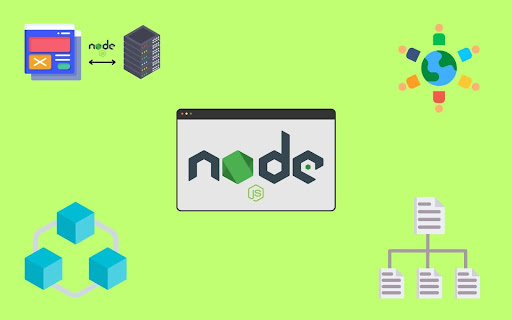
Major Characteristics of Node.js:
The main features of Node.js can be categorized into five distinct aspects:
– Asynchronous Event-Driven Environment:
Node.js offers an asynchronous event-driven environment, enabling efficient CPU resource utilization by allowing simultaneous operations during I/O processes.
– Single Language for Multiple Layers:
Node.js is based on JavaScript, allowing the same language to be used for both front-end and back-end development, significantly boosting developer productivity.
– Lightweight Nature:
Node.js’s environment is highly lightweight, with modular code structure that ensures high performance in parallel processing and handling large volumes of data. It also supports a wide array of libraries and packages for ease of use.
– Scalability:
The process of adding or updating new modules in Node.js is remarkably simple, making it accessible even for beginners and facilitating easy project creation and expansion.
– Diverse Community and Ecosystem:
Node.js boasts a vast and active community and ecosystem, continually developing various modules and packages, fostering ongoing innovation and improvement.
Advantages of using Node.js
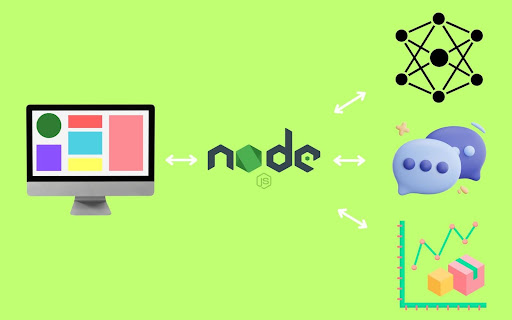
Node.js Advantages:
Traditional web servers, mostly thread-based for I/O processing, contrast with Node.js, which is designed for event-based operation, ideal for developing large-scale network services.
In event-based systems, tasks are initiated as their respective events occur, enabling ‘asynchronous processing’ and allowing for Non-Blocking operations within a single thread.
<A moment of Insight>
Blocking:
A method in Node.js where one task must wait for another to complete before executing.
Non-Blocking:
A method where Task B can commence without waiting for Task A to finish, even if Task A is still in process.
Project suitable for Node.js Implementation

Applying Node.js in Projects:
Node.js, being an event-based system, differs from thread environments by processing tasks in parallel. This characteristic makes it ideal for systems with high request volumes, such as chat services or projects involving real-time data display charts.
Additionally, as it uses JavaScript, Node.js is particularly adept at handling JSON data formats, making it well-suited for API server development.
Moreover, the use of JavaScript as a single language for both front-end and back-end development enhances productivity, making Node.js valuable for rapid project launches.
Node.js significantly reduces the time required to set up development environments and offers straightforward usage, leading to high productivity. This is particularly beneficial for startups or businesses that need to rapidly develop minimum viable products (MVPs) to test their business models.
Need to Develop a Web Program with Customer Service Features or an API Server-Based Project?
Register your project on Elancer and match with Node.js experts!


Established in 2000, Elancer is South Korea’s premier IT freelancer matching platform, leveraging 23 years of experience and data to match the perfect IT freelancers for companies’ projects.
It has successfully matched IT freelancers for over 56,000 projects, achieving a total project value of over 1 trillion won.

